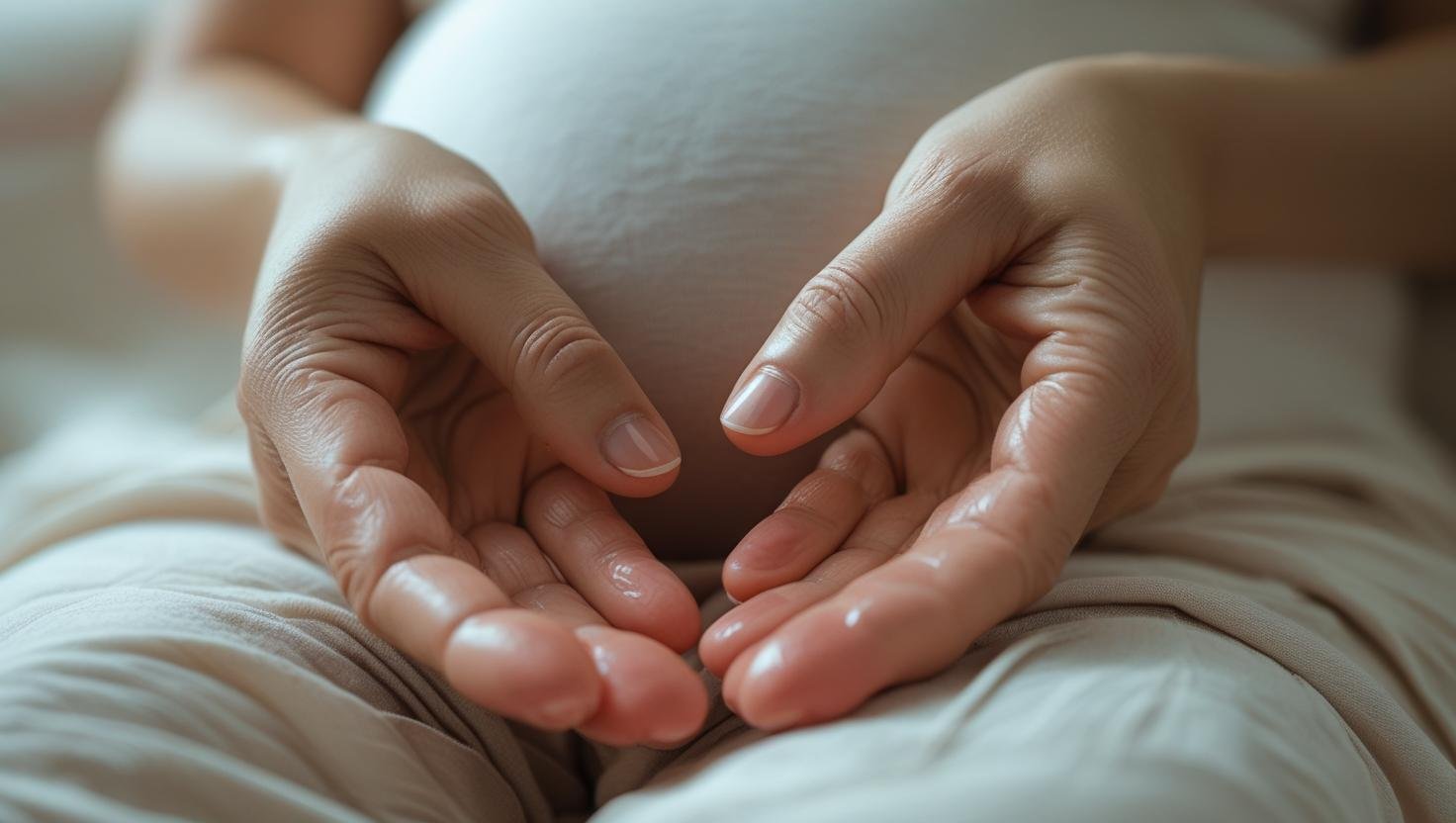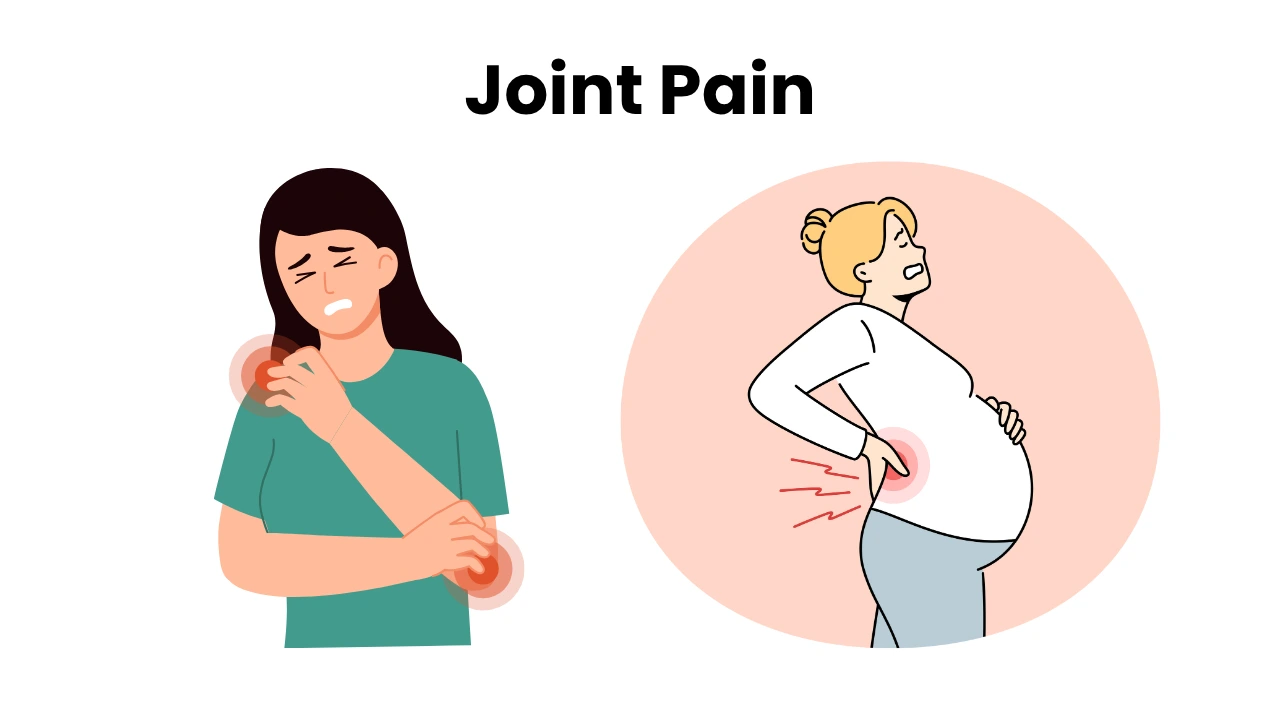Pregnancy is a beautiful journey, but it often comes with physical changes that may feel uncomfortable. One of the common concerns many expecting mothers face is swollen painful hands during pregnancy. This condition can range from mild puffiness to more noticeable swelling that makes daily activities difficult. While some degree of swelling is considered normal, persistent pain and swelling in the hands or fingers may need medical attention.
In this guide, we’ll cover why this happens, safe ways to reduce swelling, gentle exercises, when to see your doctor, and practical tips to keep your hands comfortable throughout pregnancy.
Read also: If Pregnant Will an Ovulation Test Be Positive: Pregnancy Guide
Table of Contents
What Causes Swollen Painful Hands During Pregnancy
Swelling, also known as edema, is very common during pregnancy. The body produces more blood and fluids to support the growing baby, which can lead to extra fluid being retained in tissues. This often shows up as swelling in the hands, feet, ankles, and face.

Some of the most common causes of swollen painful hands during pregnancy include:
- Increased blood volume and fluid retention – Hormonal changes cause your body to hold on to more water.
- Pressure from the growing uterus – As your baby grows, circulation slows down, leading to fluid buildup.
- Hormonal changes – Pregnancy hormones can relax blood vessel walls, making it easier for fluids to leak into tissues.
- Carpal tunnel syndrome – Fluid retention may press on the median nerve in your wrist, causing numbness, tingling, or pain in the hands and fingers.
- Heat and physical activity – Warm weather or standing for long hours can worsen swelling.
While swelling is often harmless, if it becomes sudden, severe, or accompanied by high blood pressure or headaches, it could indicate preeclampsia, which requires immediate medical care.
How Can You Safely Reduce Swelling in Your Hands While Pregnant
Managing swollen painful hands during pregnancy requires a combination of lifestyle adjustments and self-care. Some simple yet effective strategies include:
- Stay Hydrated – Drinking enough water helps flush excess fluids and reduces water retention.
- Limit Excess Salt – Too much sodium can worsen swelling, so cut back on processed and salty foods.
- Elevate Your Hands and Feet – Whenever possible, keep your hands raised or rest your arms on a pillow.
- Use Cold Compresses – Applying a cool pack to your hands can reduce puffiness and discomfort.
- Avoid Tight Jewelry – Rings and bracelets can restrict circulation and worsen swelling.
- Wear Comfortable Clothing – Choose loose sleeves and avoid anything that compresses your arms or wrists.
- Stay Active – Gentle walking, prenatal yoga, and light stretching promote healthy circulation.
- Rest Frequently – Breaks during the day help prevent fluid from pooling in your extremities.
When Should a Pregnant Woman Contact Her Doctor About Hand Swelling
Although hand swelling is usually harmless, it’s important to know when to seek medical attention. You should reach out to your doctor if you experience:
- Sudden or severe swelling in the hands, face, or around the eyes.
- Hand swelling accompanied by high blood pressure, headaches, or blurred vision.
- Persistent numbness or tingling that doesn’t improve with rest.
- Severe pain that interferes with your daily activities.
These could be signs of preeclampsia, gestational hypertension, or severe carpal tunnel syndrome. Timely consultation ensures both you and your baby remain safe.
Are There Gentle Exercises That Help Prevent or Ease Hand and Finger Joint Pain in Pregnancy
Exercise helps improve circulation and reduce fluid retention. Gentle movements can also ease stiffness and discomfort from swollen painful hands during pregnancy. Some safe exercises include:
- Finger stretches – Extend your fingers wide apart, hold for a few seconds, and relax.
- Wrist rotations – Slowly rotate your wrists in circles to reduce stiffness.
- Fist clenching – Make a gentle fist and release, repeating several times.
- Hand massage – Lightly massage your fingers and palms to promote blood flow.
- Prenatal yoga poses – Certain stretches improve circulation throughout the body.
Always perform exercises slowly and stop if you feel pain. A prenatal physical therapist can guide you through safe routines tailored to your condition.
What Steps Should You Take if Hand or Finger Pain Becomes Severe and Persistent
Sometimes, swelling and pain don’t go away on their own. If swollen painful hands during pregnancy become more than an occasional discomfort, here are steps you can take:
- Talk to Your Doctor – Persistent pain may need medical evaluation.
- Consider a Wrist Splint – For carpal tunnel syndrome, a wrist brace can relieve nerve pressure.
- Apply Warm or Cold Therapy – Warm compresses help stiffness, while cold packs reduce swelling.
- Check Your Sleeping Position – Avoid sleeping on your hands; instead, support your arms with a pillow.
- Take Breaks from Repetitive Work – Typing, knitting, or phone use can worsen symptoms.
Medical treatments may include physical therapy, prescribed exercises, or medications (only under doctor guidance). Never self-medicate during pregnancy.
What Additional Tips Can Help Manage Hand and Finger Discomfort During Pregnancy
Aside from lifestyle changes, there are small adjustments that can make a big difference:
- Soak your hands in cool water for a few minutes to ease puffiness.
- Use pregnancy-safe compression gloves to improve circulation.
- Maintain a balanced diet rich in potassium and magnesium (bananas, avocados, leafy greens) to regulate fluids.
- Sleep on your left side to improve blood flow and reduce pressure on veins.
- Practice relaxation techniques such as deep breathing, meditation, or prenatal massage to ease stress-related tension.
These tips, combined with exercise and hydration, can significantly reduce discomfort.
Final Opinion
Experiencing swollen painful hands during pregnancy can be frustrating, but in most cases, it’s a normal part of your body adjusting to pregnancy changes. Simple lifestyle modifications like staying hydrated, exercising gently, elevating your hands, and avoiding excess salt can go a long way in easing discomfort.
However, always pay attention to your symptoms. If swelling is sudden, severe, or associated with other warning signs, contact your doctor right away. With proper care and small adjustments, you can reduce discomfort and focus on enjoying your pregnancy journey.
FAQs for Swollen Painful Hands During Pregnancy
Swollen feet and hands during pregnancy
It’s common for swelling to affect both the hands and feet due to extra fluid retention. However, sudden or severe swelling in both areas may require medical evaluation to rule out complications.
Third trimester joint pain
Many women notice joint pain in the third trimester as their body prepares for delivery. Extra weight, fluid retention, and hormonal changes can make hand and finger joints ache more at this stage.
Joint pain early pregnancy symptom
While joint pain is more common later in pregnancy, some women may experience it early due to hormonal shifts or underlying conditions. If pain is severe or unusual, consult your healthcare provider.
Finger joint pain during pregnancy
Finger pain is often linked to carpal tunnel syndrome or fluid retention. Gentle exercises, proper hydration, and wrist support can help relieve finger joint pain during pregnancy.







